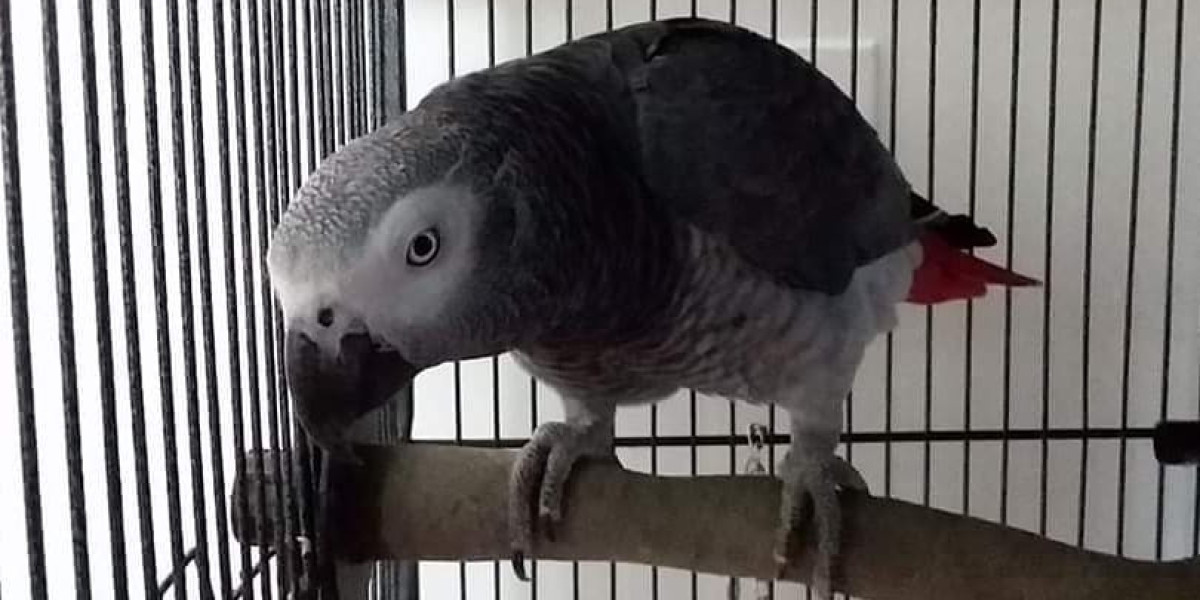African Grey parrots, recognized for their exceptional intelligence and remarkable ability to mimic human speech, have captured the hearts of many bird enthusiasts and pet owners worldwide. However, understanding the lifespan of these enchanting creatures is crucial for potential owners and current caretakers. Let's delve into the average lifespan, factors affecting their longevity, and how to ensure your feathered friend lives a long, healthy life.
Average Lifespan of African Grey Parrots
African Grey parrots typically range in lifespan from 50 to 60 years in captivity, although some have been known to live even longer, reaching up to 80 years or more with proper care. In the wild, their lifespan may be shorter—generally around 20 to 40 years—primarily due to predation, environmental hazards, and scarcity of food.

The following table summarizes the lifespan variations between wild and captive African Grey parrots:
| Environment | Average Lifespan |
|---|---|
| Wild | 20 - 40 years |
| Captive | 50 - 80 years |
Factors Affecting Lifespan
Several factors influence the lifespan of African Grey parrots. Understanding these elements can aid in fostering an environment conducive to their health and longevity.
Diet:
- A balanced diet rich in fruits, vegetables, nuts, and high-quality pellets is vital. Poor nutrition can lead to obesity, cardiovascular issues, and a host of health problems that shorten a parrot's life.
Environment:
- A safe, clean, and spacious living environment can significantly improve a parrot’s mental and physical health. African Greys thrive in environments that mimic their natural habitats.
Social Interaction:
- African Grey parrots are highly social creatures. They require daily interaction, mental stimulation, and socialization to thrive. Loneliness and boredom can lead to behavioral issues and stress, negatively impacting their health.
Veterinary Care:
- Regular check-ups with an avian vet can help catch and treat health issues early. Vaccinations, parasite control, and routine health screenings are essential components of a comprehensive health program.
Exercise:
- Regular physical activity helps prevent obesity and promotes cardiovascular health. Providing opportunities for flight and play is crucial for physical well-being.
Genetics:
- Like all animals, genetics play a role in lifespan. Individual birds may have different lifespans due to variations in their genetic makeup and predispositions to certain health conditions.
Ensuring a Long and Healthy Life
To provide an optimal lifestyle for an African Grey parrot and help ensure a long lifespan, caregivers should consider the following practices:
Balanced Diet:
- Food Variety: Ensure a mix of pellets, seeds, vegetables, and fruits. Avoid processed and high-fat foods.
- Regular Fresh Water: Always provide fresh, clean water to keep your parrot hydrated.
Environmental Enrichment:
- Cage Size: Choose a spacious cage that allows for movement. The larger the cage, the more comfortable your parrot will be.
- Toys and Activities: Regularly rotate toys and provide challenges to stimulate their minds.
Socialization Needs:
- Interactive Play: Spend time engaging with your parrot daily. Teach them tricks or let them socialize with family members.
- Companionship: If feasible, consider keeping a second bird for companionship.
Routine Veterinary Care:
- Annual Check-Ups: Schedule annual veterinary visits to monitor health, get vaccinations, and address any issues.
- Be Informed: Stay updated about common health problems in African Grey parrots.
Physical Activities:
- Free Flight: Whenever safe and possible, allow your parrot to fly freely in an enclosed space.
- Activity Playsets: Provide access to climbing structures and swings to encourage exercise.
FAQs About African Grey Parrots' Lifespan
What is the average lifespan of an African Grey parrot?
- The average lifespan of an African Grey parrot in captivity ranges from 50 to 60 years, with some living up to 80 years.
Why do African Greys live longer in captivity?
- In captivity, African Grey parrots have protection from predators, access to food, regular veterinary care, and a stable environment, all contributing to extended lifespans.
What are common health problems that may affect their lifespan?
- Common health problems include obesity, feather plucking, beak and feather disease, and respiratory infections.
Can stress affect the lifespan of an African Grey parrot?
- Yes, chronic stress can lead to various health issues in African Grey parrots, which may significantly impact their lifespan.
Do African greys need a companion?
- While not strictly necessary, many African Grey parrots benefit from the company of another bird or frequent interaction with their human family.
African Grey parrots are more than just pets; they are intelligent beings that require thoughtful care and attention. Understanding their lifespan and the various factors that can affect it is crucial for anyone considering welcoming one into their home. By providing a fulfilling environment, engaging diet, and rich socialization opportunities, caregivers can significantly contribute to the health and longevity of their african grey parrot for beginners Grey companions. By implementing the best practices outlined above, not only can you enjoy your parrot's company for decades, but you can also enhance their quality of life. The journey of caring for an African Grey is one filled with joy, companionship, and mutual respect, making the effort well worth it.








